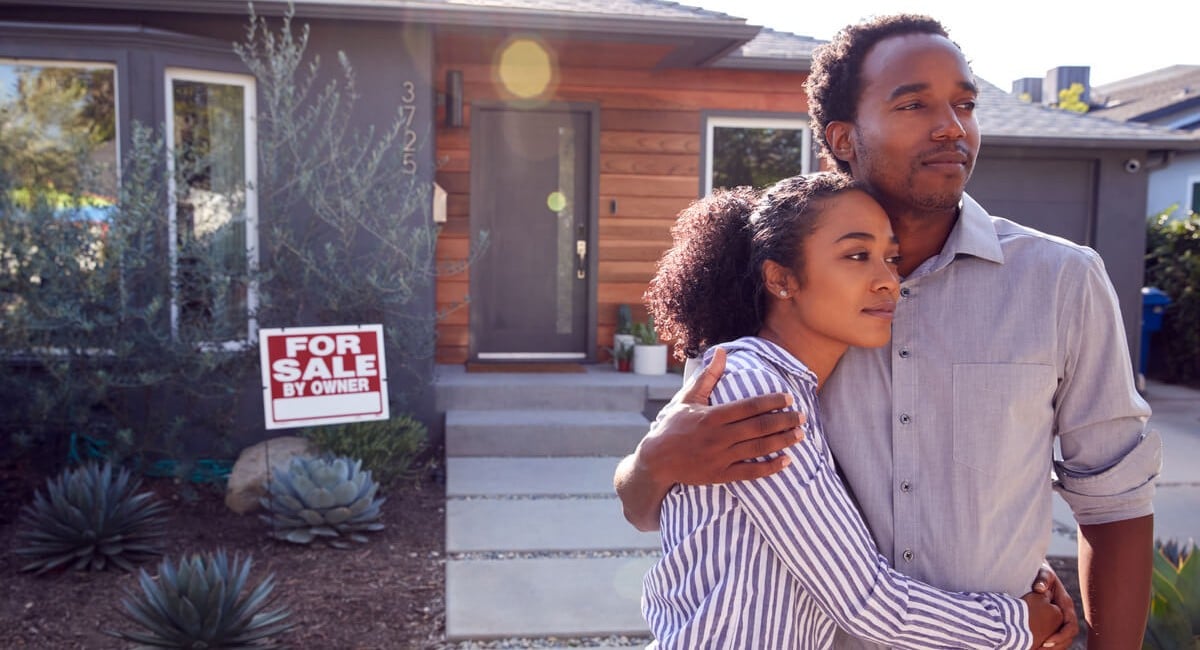Buying a home is supposed to be an exciting milestone, but many buyers report feelings of regret after their purchase. Once you’ve closed on your home, you can’t go back, so buyer’s remorse can be a gut-wrenching experience. If you’re in the market for a house, you should understand what buyer’s remorse is, why it happens, and what you can do to avoid or overcome it.

Why Buyers Experience Remorse
Home buyers can regret their purchase for a wide variety of reasons. Here are some of the most common causes of buyer’s remorse:
Overspending
If your house stretches you thin financially, you may start to resent it. Maybe your closing costs were larger than you expected, or maybe your monthly mortgage payment with taxes and insurance is putting a strain on your budget. Overspending on a house is easy to do, and it can leave you with a lot of stress.

Unexpected Repairs
While a home inspection should reveal plenty of information about the condition of a house, unexpected issues can still pop up. The inspection may not cover everything, and certain problems can be easy to miss. Surprise repairs can cause you to fall out of love with your house quickly.
Location Problems
Location is one of the most important aspects of real estate, and it’s one that you don’t have control over. If you have noisy or disrespectful neighbors, you can’t force them to move out. If you live near a railroad track and a noisy train passes through in the middle of the night, you can’t stop it. While you can do your best to scope out the neighborhood before you make an offer, you might not notice every problem until you move in.

How to Avoid Buyer’s Remorse
Buyer’s remorse is an unfortunately common experience. However, you can reduce your risk of regret if you approach your home search in a thoughtful, careful manner. Here are seven tips for avoiding buyer’s remorse:
Stick to Your Budget
Overspending is one of the most common causes of buyer’s remorse. The key to success when buying a home is sticking to your budget. Don’t even look at houses that are outside of your price range, and be cautious when getting into a bidding war. Make sure to factor in extra expenses like property taxes, insurance, and preventative maintenance into your monthly budget.
Take Your Time
Rushing into a home purchase is a recipe for disaster. If you have a strict deadline for moving and haven’t found the right home, consider renting for a year or two instead of buying a house right away. Give yourself plenty of time to evaluate the market and assess your own needs before making a decision. The right property might not come your way immediately, but your patience will pay off.
Work With a Trusted Agent
Your real estate agent can make or break your home buying experience. A good agent will take the time to understand your wants and needs and won’t pressure you to look at homes outside of your budget. You should feel comfortable talking to your agent about any concerns you have with a property. They can provide unbiased feedback on whether a home is the right fit for you.

Get an Inspection
Although you may be tempted to waive the inspection to beat out other buyers, the inspection is one of the most critical steps of the home buying process. If you don’t get a home inspection, you could end up with a house needing tens of thousands of dollars in repairs. You should always include an inspection contingency in your offer so that you don’t get trapped in a bad deal.
Research the Location
Before making an offer, learn as much as you can about the neighborhood. Research the local schools, and look into the value of other homes in the area. Visit the neighborhood at different times of day to see how noisy it is. See if the community has a Facebook group where neighbors share news, events, or concerns. While you can’t learn everything about your neighbors before you move in, you can get a good understanding of how the community functions.

Be Ready to Walk Away
Your willingness to walk away from a bad deal will be your superpower as a home buyer. Some buyers continue with a sale even when their gut tells them otherwise because they don’t want to restart their home search. However, it’s always easier to walk away before closing than it is to be stuck with a house that feels like a curse. Trust your instincts, and be ready to move on at any time.
Don’t Look at Other Homes After Closing
Once you’ve closed on the house, stop looking at new listings. Unsubscribe from real estate email lists, and remove real estate websites from your bookmarks. Continuing to look at houses will only cause you to doubt your decision and wonder what would have happened if you pursued a different opportunity.

How to Overcome Buyer’s Remorse
If you’re experiencing buyer’s remorse after purchasing a home, you’re not alone. Many buyers experience regret, and many are able to overcome their regret and find joy and peace in their new homes. Here are four tips for dealing with buyer’s remorse:
Give It Time
In many cases, buyer’s remorse simply goes away with time. A home may be the biggest purchase of your life, and it’s normal to second-guess such an important decision. Give yourself time to settle in and adjust to your new life, and the remorse may fade away.
Remember What You Love
Focusing on the positives can help you overcome feelings of regret. You might face unexpected problems with your new home, but there are probably plenty of things you love, too. Make a list of everything you like about the house, and read through it when you experience remorse.

Make the House Your Own
If you’re struggling to adjust to your new house, work on making it feel more homey and comfortable. Put up personal decor, or paint the walls your desired color. If you have the funds, you could take on a bigger renovation project that will help you grow to love the home.
Sell or Rent Out the Home
Sometimes, buyer’s remorse just doesn’t go away. If you’ve been struggling with regret for several years, it may be time to move on. Selling a house so soon after buying it can be difficult, but it can also open up better opportunities. If selling the home isn’t financially possible, consider renting it out and moving elsewhere.
Buyer’s remorse after purchasing a home can be emotionally devastating. You can prevent buyer’s remorse by taking your time in the real estate market, understanding your wants and needs, and running your ideas by a trustworthy agent. It’s easy to rush into a decision when in the market for a home, but you don’t want such a major purchase to become a source of regret.







